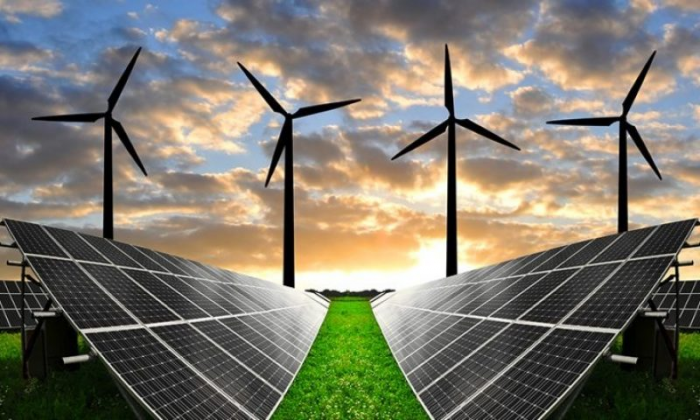Overview
Croatia supports a wide range of technologies for electricity generation, energy efficiency, heating, cooling and transport through different schemes. The Croatian Bank for Reconstruction and Development offers lending instruments to promote energy efficiency and renewable energy projects. Electricity generation from renewable energy sources such as solar power and hydropower projects is supported by a feed-in tariff/premium.
Electricity support schemes are usually promoted through the Environmental Protection and Energy Efficiency Fund (FZOEU, Fond za zaštitu okoliša i energetsku učinkovitost) and several other institutions, namely the Croatian Bank for Reconstruction and Development (HBOR, Hrvatska banka za obnovu i razvitak), the Croatian Agency for SMEs, Innovations and Investments (HAMAG BICRO, Hrvatska agencija za malo gospodarstvo, inovacije i investicije), and the European structural and investment funds. FZOEU funds are awarded exclusively through public tenders, usually lasting for a specified amount of time, so there are no support schemes running continuously for multiple years from the Environmental Protection and Energy Efficiency Fund.
Feed-in tariffs (FIT; zajamčena otkupna cijena) and Feed-in Premiums (FIP; tržišna premija) are awarded only through tender procedures operated by the Croatian Energy Market Operator (HROTE, Hrvatski operator tržišta energije). HROTE awards FITs and FIPs through public tenders published at least once a year.
HROTE, based on the provisions of the Law on Renewable Energy Sources and High-Efficiency Cogeneration ("Official Gazette" No. 138/21 and 83/23), the Regulation on the Promotion of Electricity Production from Renewable Energy Sources and High-Efficiency Cogeneration ("Official Gazette" No. 70/ 23), and the Regulation on Quotas for Encouraging the Production of Electricity from Renewable Energy Sources and High-Efficiency Cogeneration ("Official Gazette", No. 57/20), as well as in accordance with the State Aid Program for the Encouraging System of Electricity Production from Renewable Energy Sources and High-Efficiency Cogeneration of cogeneration with a market premium and a guaranteed purchase price from April 2024, on October 16. published a Public Call for public collection of offers with conditions for participation in the public tender for incentives with a guaranteed purchase price no. 2024-2.
There is an obligation for new buildings obliging every new building to adhere to the nZEB (nearly zero energy building) standard. A building can obtain the nZEB energy certificate only if the energy performance of a building and the share of renewable energy sources meet the general requirements for nearly zero energy buildings
A net metering system is applicable to electricity-producing consumers (prosumers).
In 2023, the conditions for grid access for photovoltaic facilities with a connection capacity of up to 50 kW were improved. The latest amendments to the relevant law enabled households to keep their self-consumption status when they produce more electricity than they consume within the one-year billing period.
Croatia enacted the new distribution grid connection rules in September 2023 for facilities producing electricity from renewable sources with up to 50 kW in connection capacity. Currently, there is no test period for this category. The procedure for prosumers—end-customer households and enterprises with their own production—was substantially eased and accelerated.
The adoption of the regulation will primarily affect the smallest solar power systems.
The Integrated National Energy and Climate Plan for the Republic of Croatia for the period 2021-2030 sets a national RES target of 63.8% in the gross direct consumption of electricity.
Summary of support system
- Loan for Public and Private sector investments – The low-interest loans for financing production of own electricity from renewable energy sources with the goal of reducing energy costs are managed by the Croatian Bank for Reconstruction and Development (HBOR). Entities from areas affected by the 2020 earthquakes can achieve a further reduction of the interest rate.
- Investment Loans for Rural Development - The low-interest loans for financing production of own electricity from renewable energy sources with the goal of reducing energy costs are managed by the Croatian Bank for Reconstruction and Development (HBOR). Entities from areas affected by the 2020 earthquakes can achieve a further reduction of the interest rate.
- Tenders for Feed-in tariffs - The Croatian Energy Market Operator (HROTE) operates the tenders. The tenders for Feed-in tariffs are available only for projects with up to 500 kW of installed power
- Tenders for Premium Tariffs - The Croatian Energy Market Operator (HROTE) operates the tenders.
- Net-metering - The net metering system is applied differently for prosumers in the commercial sector (business and industry) and differently for the household sector. Prosumers in the household sector must not produce more electrical energy than they consume in a calendar year. Prosumers in the commercial sector are allowed to produce more electrical energy than they consume, but the installed power must not be greater than the contracted power of the consumer.
- RES-E building obligations - RES-E building obligation is a nZEB (nearly zero energy building) obligation, which is implemented through the Building Act and other technical regulations.
Competent authorities
- Environmental Protection and Energy Efficiency Fund (FZOEU)
- Croatian Bank for renewal and development
- Croatian agency for small business, innovation and investment (HBOR)
- HAMAG BICRO - Croatian energy market operator
- The Croatian Energy Market Operator (HROTE)

